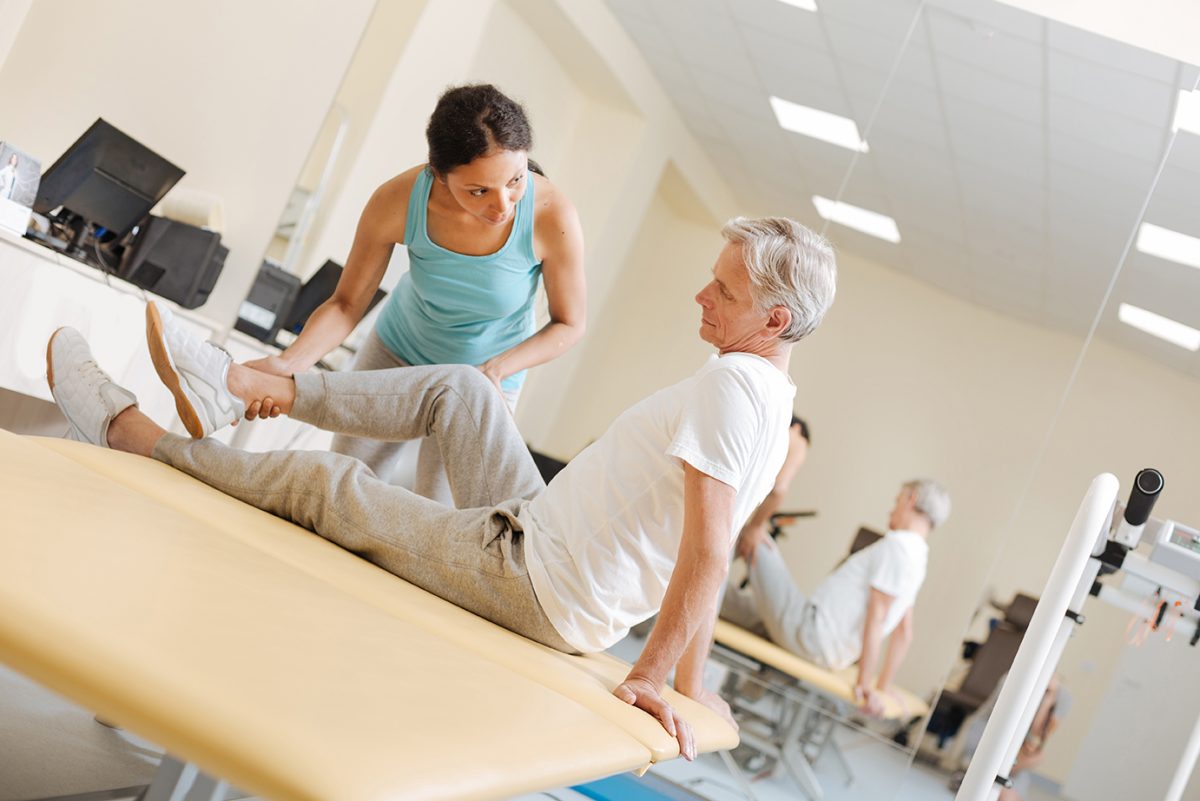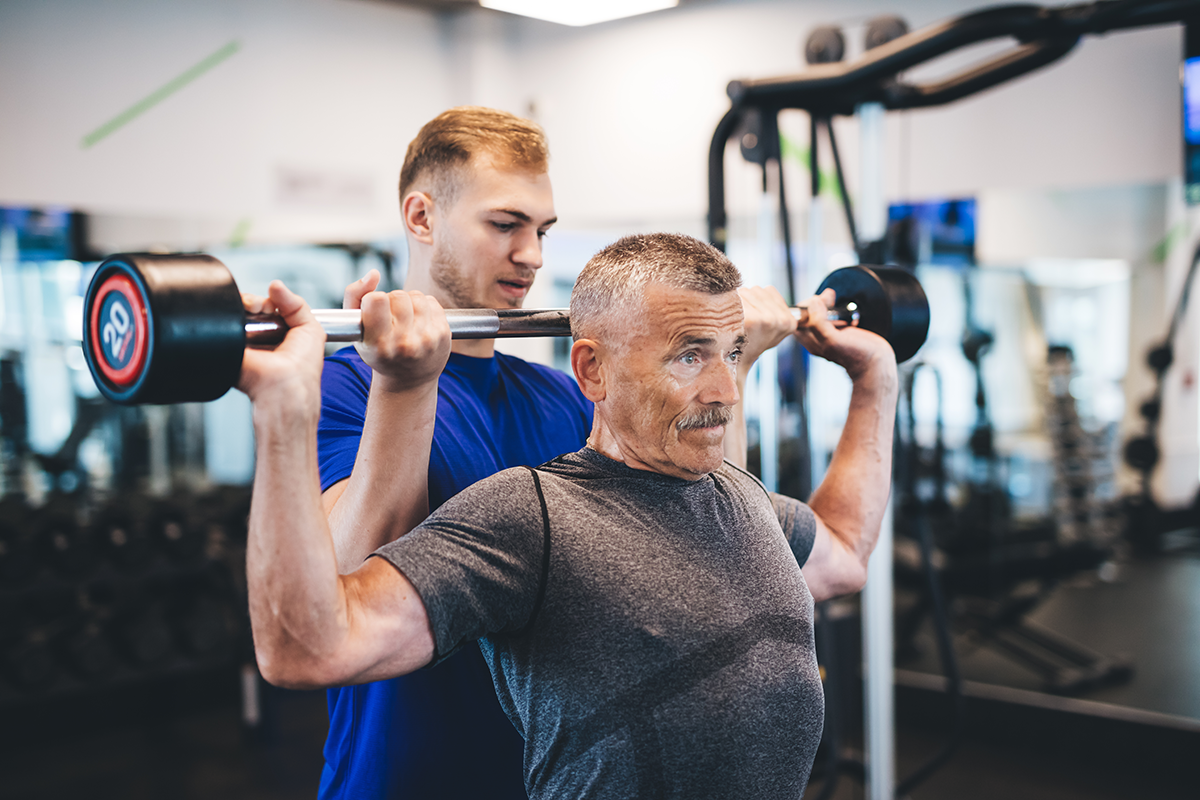Functional Movement Patterns in Exercise For MS
You’ve heard the terms functional exercise, functional movement or functional movement patterns… but what do these terms actually mean?
The term “functional movement patterns” is confusing because it is really not a specific term. Trainers, especially those putting MSers on exercise programs, will usually take them through a program of upper and lower body exercises incorporating compound movements that ask your body to do several things at once. They tell you this is a functional exercise routine and that it’s the best way to help you with your MS limitations. Every exercise is NOT considered a functional one. So what’s the difference?
Functional, by definition, means, “of or having a special activity, purpose, or task; relating to the way in which something works or operates”. In this case, the task is being a functional MSer with the ability to use your body to do what you’d like it to do like you did before your MS diagnosis.
And even though being “functional” is different from one person to the next—for instance, a triathlete needs to be able to run, bike, and swim without limitation or pain, while a homemaker (male or female) needs to be able to do household chores such as lifting groceries out of a car, moving a vacuum cleaner and loading and unloading a dishwasher without limitation or pain—the actual movement patterns required for these activities aren’t really that different.
When you think of functional movement patterns, you should see them as movements that engage your whole body in a variety of different active ways that involve coordinating your upper and lower body with areas that alternate from being steady to moving, and back again.

So where exercises like squats are considered functional because they require full-body coordination, strength, and stability exercises like biceps curls aren’t considered functional because they lack the full-body mental and physical engagement that comes into play with basic motion.
The main difference between functional training and other exercises that work each muscle is that exercises such as biceps curls or leg extensions attempt to isolate that muscle. When doing these movements we’re working individual body parts as separate from the others creating stimulus within those parts. Functional movements put the emphasis on using your whole body at once.
The focus on functional movement patterns, in theory, is to train your body to move effectively as a fully connected single unit so it is able to sit, stand, bend or change direction effectively when you need it to. Some of the functional exercises I use are squats, lunges, and pushups. These movements effectively engage the whole body in the exercise although they emphasize specific muscles as the main force of action.

I believe in functional movement patterns and agree there is a place for them in MS training BUT without the individual muscle-specific training it would be impossible to do a functional movement. If your legs are so weak from MS limitations how are you going to perform a proper squat that uses all the muscles in your legs?! You won’t be able to. This is why specific muscle training is so important. And the only way to get muscle-specific strength is through resistance training. But it doesn’t end there…
You must strength train each major muscle group, individually and specifically to gain the ability to “function”. I know you keep hearing about functional exercise for MS and how important it is. You are told that you MUST be in a program using functional movement patterns to help your MS limitations. I HAVE MS and I have been a fitness expert for more than 40 years. The real FACT is that functional movement patterns are secondary to strength training. They are important but more important to your physical abilities are training methods that incorporate resistance exercises with principles that cause “thought-based training” ™ which create muscle fiber activation, neuroplasticity, and brain to muscle reconnection.
So where am I going with all this?
Please be careful with who and what you take in as being the right fitness information for MS, especially coming from fitness “experts” who do not understand MS. There is much more to proper exercise for MS than jumping into the next repetitive functional program. And any trainer who says he/she is teaching you how to place mental attention on your workouts but only tells you to concentrate on what you are doing does not understand the significance of proper focus. It is not just a simple matter of paying attention to your exercises and form. It is the training methods you use that force that focus and concentration that is of key importance in your MS exercise program. Exercise programs pushing functional pattern movements with no focus driven process or training method behind them other than the standard and cookie-cutter, “do 10 reps of 3 sets”, are of little value in bringing results to our MS bodies.
Continued Education for Fit Pros
Learn what you need to help MSers… check out the Multiple Sclerosis Fitness Specialist online course for fitness and health professionals!

David Lyons, BS, CPT, is the founder of OptimalBody, which touches the lives of fitness enthusiasts of all kinds. OptimalBody has been named The Most Comprehensive MS Fitness Program worldwide since its release. His book, Everyday Health & Fitness with Multiple Sclerosis, was a #1 New Release on Amazon at its release. He is the 2013 recipient of the Health Advocate of the Year Award; in 2015, he received the first ever Health Advocate Lifetime Achievement Award, and the Lifetime Fitness Inspiration Award in Feb 2016. In 2017, David received the Special Recognition Award from the National Fitness Hall of Fame.








 This is where becoming a
This is where becoming a 
